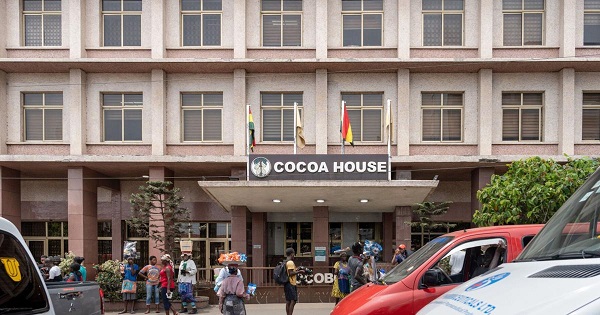Ghana’s cocoa industry is set for a major financial windfall, with more than $4 billion expected to flow into the economy before the close of the year. The announcement, made by Bank of Ghana Governor Dr. Johnson Asiama in a recent interview, has sparked optimism about the country’s currency outlook and its financial stability.
According to Dr. Asiama, the anticipated inflows are tied to a new financing model introduced by COCOBOD to support purchases for the upcoming crop season. Unlike the old system, which relied heavily on syndicated loans from international banks, the revamped approach requires global cocoa buyers to put down at least 60% of the value of their contracts upfront.
“This arrangement not only secures funds for cocoa purchases but also strengthens Ghana’s reserves, giving us more room to protect the cedi,” the Governor explained.
Cocoa Money, Stronger Cedi
The expected inflows will add to Ghana’s current international reserves of $11.1 billion, reported in July, providing the central bank with a stronger buffer to stabilize the cedi. For ordinary Ghanaians, this means greater confidence that the local currency will remain steady against the dollar in the months ahead.
“Markets want to know that the central bank can step in when necessary,” Dr. Asiama noted. “With these inflows, we are in a solid position to meet the needs of businesses and commercial banks.”
How the New Cocoa Financing Works
For decades, Ghana relied on syndicated loans—arrangements where multiple banks pooled funds to support annual cocoa purchases. That model has now been replaced with something far more direct: global traders depositing significant funds at the start of the season.
These deposits then flow through licensed buying companies (LBCs), which work hand-in-hand with farmers. Essentially, traders front the money, LBCs handle purchases, and COCOBOD coordinates the system. The result? A structure that’s faster, leaner, and less dependent on outside loans.
Keeping the Economy Grounded
While the cedi has faced its share of turbulence in recent months, Dr. Asiama remains confident. He pointed to strong macroeconomic fundamentals and the Bank of Ghana’s ongoing interventions as reasons for optimism.
“Our reserves are healthy, and the fundamentals remain sound,” he assured. “Through discipline, transparency, and firm regulation, we’re creating a market where the cedi can trade freely—but with predictability and confidence.”
At the same time, the Governor cautioned against practices that undermine the system such as black-market dealings, offshoring funds, or filing false import documents warning that such activities would attract sanctions.
A Sweet Outlook
For a country where cocoa is not just an export but part of its cultural identity, the new financing system offers more than just cash. It signals resilience, innovation, and the ability to adapt old systems for modern realities. And with billions set to arrive before the year wraps up, Ghana’s economic outlook may just be looking a little sweeter.













